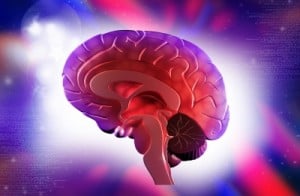
A comment to a previous blog post got me thinking: it is very reasonable to wonder if neurofeedback can be helpful with performance enhancement. Here at Advanced Neurotherapy, we have helped athletes, composers, choreographers, and business people enhance their performance. There is indeed research on the application of neurofeedback in performance enhancement. Look below for a sample of that research. Please note that the Leveque study demonstrated the improvement of the functioning of neurological systems that support selective attention and inhibition (stopping impulses) in children with ADHD. It is reasonable to extrapolate from this study that the functioning of these structures is also enhanced in high functioning individuals whose goal is performance enhancement. Improved attention impulse control supports this goal.
There is also a body of research (see the research page on our website) concerning the enhancement of IQ. Again, it is reasonable to extrapolate from the existing research that this is happening with high functioning individuals as well. In fact, children with ADHD often have very high IQ’s and these high IQ children were among the participants in these studies.
I see quite a number of adolescents who are doing well in school, but are coming up to college age and would like to be able to gain admittance to a better college. They come here for neurofeedback, improve their grades (from B’s to A’s), increase their scores on the SAT’s, and typically are admitted to a college at least one tier higher than they had been able to qualify for prior to neurofeedback.
I also see a number of very highly intelligent and accomplished adults whose functioning and or quality of life are impeded by either anxiety or depression. These folks obtain great relief from neurofeedback.
Anxiety is known to reduce the functioning of the brain and, in particular, the frontal lobes, which impairs performance. The calm focus resulting from neurofeedback insures that a person will be able to perform as well under pressure as they do during practice or in more ordinary situations. Therefore, another aspect of peak performance is the ability to be calm under pressure. Exams, recitals, concerts, talks, speaking in public, sporting events; all of these require this ability. Neurofeedback reduces anxiety and teaches the brain to maintain its ability to regulate, even in situations of tremendous pressure. Neurofeedback specialist Rae Tattenbaum presented a lovely case of a cellist whose concert performance improved as a result of neurofeedback.
As for the specific question concerning processing speed, neurofeedback is reliably effective at enhancing processing speed. This is not only the result of neurofeedback’s ability to enhance neurological efficiency, but it is also the result of reduced anxiety. Increasing your processing speed will increase your IQ, so you are likely to hit the ceiling in more of the subtests on the Wechsler Scales (WAIS).
There are many reasons that people experience slow processing. It can be associated with brain injury, even very slight brain injury (a head bump in the right place, for example), exposure to toxins, a period of reduced oxygen (no matter what the cause), seizures (though not all seizures cause this), and other brain anomalies. Thankfully, these all respond to neurofeedback training.
Here is a sample of the research on Creativity & Optimal Functioning, Peak Performance and Related Articles:
- Boynton, T. (2001). Applied research using alpha/theta training for enhancing creativity and well-being. Journal of Neurotherapy, 5(1-2), 5-18.
- Budzynski, T. H. (1996). Brain brightening: Can neurofeedback improve cognitive process? Biofeedback, 24(2), 14-17.
- Egner, T., & Gruzelier, J. H. (2003). Ecological validity of neurofeedback: Modulation of slow wave EEG enhances musical performance. NeuroReport, 14(9), 1221-1224.
- Egner, T., & Gruzelier, J. H. (2004). EEG biofeedback of low beta band components: Frequency-specific effects on variables of attention and event-related brain potentials. Clinical Neurophysiology, 115, 131-139.
- Egner, T., & Gruzelier, J. H. (2004). The temporal dynamics of electroencephalographic responses to alpha/theta neurofeedback training in healthy subjects. Journal of Neurotherapy, 8(1), 43-57.
- Gruzelier, J., Egner, T., & Vernon, D. (2006).Validating the efficacy of neurofeedback for optimising performance. Progress in Brain Research,159, 421-431.
- Gruzelier, J. (2009). A theory of alpha/theta neurofeedback, creative performance enhancement, long distance functional connectivity and psychological integration. Cognitive Processing, 10 (Suppl 1), S101-109.
- Hanslmayer, S., Sauseng, P., Doppelmayr, M., Schabus, M., & Klimesch, W. (2005).Increasing individual upper alpha by neurofeedback improves cognitive performance in human subjects. Applied Psychophysiology & Biofeedback, 30(1), 1-10.
- Hoedlmoser, K., Pecherstorfer, T., Gruber, E., Anderer, P., Doppelmayr, M., Klimesch, W., & Schabus, M. (2008). Instrumental conditioning of human sensorimotor rhythm (12-15 Hz) and its impact on sleep as well as declarative learning. Sleep, 31(10), 1401-1408.
- Jackson, G. M., & Eberly, D. A. (1982). Facilitation of performance on an arithmetic task as a result of the application of a biofeedback procedure to suppress alpha wave activity. Biofeedback & Self-Regulation, 7(2), 211-221.
- Levesque, J., Beauregard, M., & Mensour, B. (2006). Effect of neurofeedback training on the neural substrates of selective attention in children with attention-deficit/hyperactivity disorder: a functional magnetic resonance imaging study. Neuroscience Letters, 394(3), 216-221.
- Thompson, T., Steffert, T., Ros, T., Leach, J., & Gruzelier, J. (2008). EEG applications for sport and performance. Methods, 45, 279-288.
- Raymond, J., Sajid, I., Parkinson, L. A., & Gruzelier, J. H. (2005). Biofeedback and dance performance: A preliminary investigation. Applied Psychophysiology & Biofeedback, 30(1), 65-74.
- Vernon, D., Dempster, T., Bazanova, O., Rutterford, N., Pasqualini, M., Andersen, S. (2009). Alpha neurofeedback training for performance enhancement: Reviewing the methodology. Journal of Neurotherapy 13(4),Pages 214 – 227.
- Vernon, D. J. (2005).Can neurofeedback training enhance performance? An evaluation of the evidence with implications for future research. Applied Psychophysiology & Biofeedback, 30(4), 347-364.








